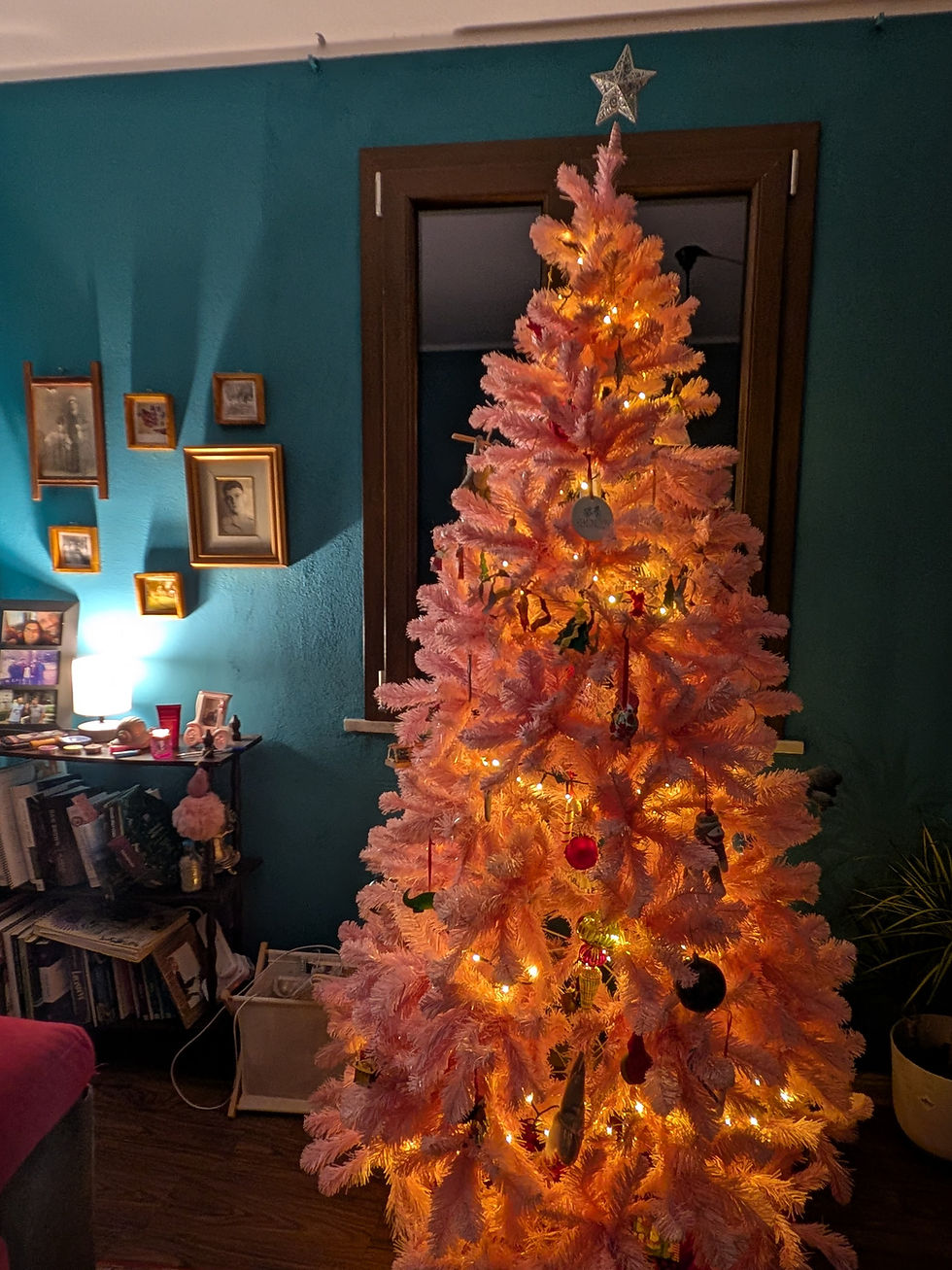Letting Go in Venice
- Su Guillory

- Oct 26, 2016
- 3 min read
The guidebooks warned me about how easy it was to get lost in Venice.
Not all of the streets are labeled, and there are many dead ends. You’ll walk and walk down a narrow calle in Venice (of which there are 3,000) only to just about fall into the canal that hides around the corner.
When I arrived in Venice alone, wearing the backpack that got me through my Dolomites hike and clutching the extra duffel bag I planned to fill with souvenirs, I decided I was okay with the idea of getting lost. After all, my carefully mapped-out route showed me that the vaporetto had dropped me just six minutes away from where I needed to meet my point of contact for the AirBnB. I had time to get lost! Heck, I even had time for lunch.
And so I meandered a bit, never far from my route, and plopped down my bags inside a pleasant-looking restaurant. I planned for a nice leisurely lunch, Italian style, but I never could manage to stretch out my scarfing down delicious pasta into more than 20 minutes, including the time it took me to casually sip my Aperol Spritz. And so I had time to spare for what I assumed was now just a three-minute stroll to my destination. I consulted the map once, then stuffed it in my bag.
Twenty minutes later, imagine my dismay when I huffed around the corner, glistening just a bit from the heat generated from toting luggage, to spy the very restaurant I had just left. It couldn’t be!
Panic mounting, I consulted the map again. I considered asking for directions, but everyone around me was as lost as I was. In fact, two girls from Eastern Europe asked me where we were!
With just minutes to spare, I stumbled into the Campo (called a Piazza outside of Venice) where I was to meet my contact. Whew. Ten minutes of waiting, resulting from my mistaking a covered well for the “fountain” I was to meet her at, and a few frantic texts later, I connected with the woman who led me to the apartment I’d rented for myself and two friends, who would join me later that day.

As we walked, sensing my frustration at how surprisingly difficult it had been to navigate the “six-minute” jaunt, she said something that struck me:
“If you spend all your time in Venice looking at maps and trying not to get lost, you miss out on Venice.”
Aha. Yes. That’s what my American brain couldn’t wrap itself around: the idea that I didn’t have to know where I was going. That time was flexible, at least to Italians. I would have to work on that.
In the meantime, I carefully left a mental breadcrumb trail when I left the apartment in search of Debbie and Jeanette, who I would meet at the vaporetto stop and lead back to the apartment. I dreaded telling them that the apartment was on the top floor, especially considering Jeanette had a rather large wheeled suitcase to wrangle.
I forced confidence when I collected them at the vaporetto and led them on the way. But just minutes later, as sure as I was I was going the right way, I found myself making the exact mistakes I’d made earlier in my misadventure. As we clomped up the stairs of canal bridges, then back down, I could feel Jeanette’s frustration rise. I heard her mutter something to Debbie, likely questioning my navigation skills.
Thank goodness for Debbie, who knew what Venice was like. She looked over her shoulder at Jeanette and said, “Oh no. It’s not like that. This is Venice.”
And that was a sufficient explanation. Venice isn’t like anywhere else. It’s not logical. It’s the MC Escher of Italy: it makes no sense when you try to understand it, and perfect sense when you finally let go of your expectations.

That night, after more Aperol Spritzes, we allowed ourselves to get utterly and deliciously lost. We found a hole-in-the-wall restaurant with a lovely and lively woman serving us freshly grilled fish. We stumbled across an amazingly designed building, which we later found out was the hospital. We even found a secret courtyard, that quietly announced the bar it housed with an arrangement of wine bottles on the covered-over well.
Had we stuck to an agenda, kept our noses to the map, we never would have had these serendipitous experiences.




Comments